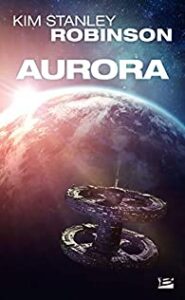

Our narrator is Freya, daughter of Badim, an important ship doctor, and Devi, who might be called the ship’s chief engineer. It is an idyllic setting, but undercurrents soon come to light. People tend to the ecosystems, farm crops, and husband livestock such as the dog-sized cows engineered to be sustainable on the 170 year voyage. The ship itself is an engineering marvel of 24 semi-autonomous rotating biomes that contain ecosystems from every Terran ecological zone. Like another character, you may come to consider the advocates of multi-generational colonization “criminally negligent narcissists.” This thought-provoking book travels the distance between those two outlooks on space exploration and leaves the reader with deep questions delivered in an absorbingly layered tale.Īurora is the story of the sixth generation of inhabitants of a world ship traveling to the Tau Ceti system where they hope to settle the fifth planet’s moon, eventually named Aurora. After reading Aurora, though, you might find yourself questioning the premise and the consequence of pursuing such a philosophy. You may even have expressed something similar yourself. This sentiment, expressed by a minor character in Kim Stanley Robinson’s space colonization tale, is probably a familiar one. Even if it’s only one percent, that’s success!” But a certain percentage will take hold and grow. Possibly it may resemble something like a dandelion or a thistle releasing its seeds to the winds, so that most of the seeds will float away and die. It’s an evolutionary urge, a biological imperative, something like reproduction itself. “We’ve known for a long time that Earth is humanity’s cradle, but you’re not supposed to stay in your cradle forever … So eventually it will happen, because we are going to keep trying.


 0 kommentar(er)
0 kommentar(er)
